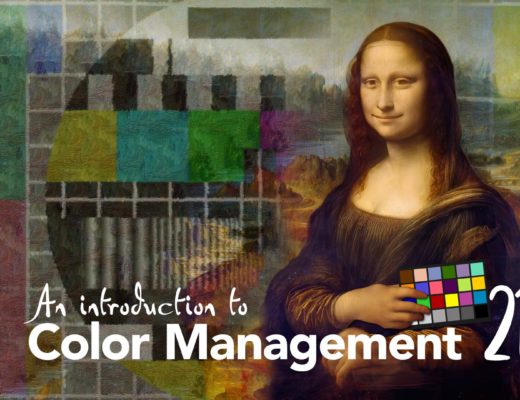For the past few months, rumors about who might purchase The Foundry were swirling almost as much as the speculation around what that would mean for the company itself. Some were predicting that products like MODO and NUKE would soon be absorbed into a new owner’s larger toolset while others predicted changes that might see the end of the company as we knew it.
Those rumors were put to rest at the end of May when the announcement about the new owners of The Foundry went public. One of the top investors in European software, HgCapital, announced a majority investment, which meant The Foundry would be able to continue to work the way it has since the company was founded. As The Foundry CEO Bill Colis says in the release, “With this deal, we remain one of the few independent companies solely focused on creative industries.”
 We wanted to find out more about what that focus can and will mean for content creators of all sizes, so we talked with Christopher Kennessey, Chief Sales and Marketing Officer at The Foundry. We discuss some of the rumors that were swirling about for the past few months, what new markets the company is focused on, how they’re looking to empower creatives of all sizes and plenty more.
We wanted to find out more about what that focus can and will mean for content creators of all sizes, so we talked with Christopher Kennessey, Chief Sales and Marketing Officer at The Foundry. We discuss some of the rumors that were swirling about for the past few months, what new markets the company is focused on, how they’re looking to empower creatives of all sizes and plenty more.
After all sorts of speculation and rumors, we finally know what the future of The Foundry looks like in terms of ownership. How does it feel to have all of that settled?
It’s a relief, as we’ve been going through this process for a few months now, and we’re lucky to be with Hg. First and foremost, they’re very software focused, which is something we’re excited about because there are a lot of best practices we’ll be able to leverage across their different companies. As a company, it’s going to help us serve our customers better, which is our ultimate goal.
What else can you tell us about the new owner of The Foundry, HgCaptial?
Their software focus is a big deal. Their software experience is going to help us grow and expand from a regional standpoint and also from a software standpoint into new markets, which is something we’re looking forward to. Having that in-house expertise and support around best practices and from a financial point is really key.
Also, Hg being London-based just like our headquarters makes this an especially ideal fit. They’re really supportive and encouraging, and it’s a great feeling to have a partner that is aligned with our ethos while also allowing us to remain independent.
You’ve got your massive organizations in the media & entertainment space, but I think Hg saw what The Foundry can and will do for this market and others. I think it’s exciting to have a company like The Foundry that’s growing and expanding our product line to help push the limits of creative tools.
We all heard the rumors about who was looking to purchase The Foundry, which made it seem like a lot of your tools your be integrated into a larger environment. How important is it that this deal allows The Foundry to remain independent?
There were rumors swirling around every other day, so one day we were being bought by Adobe, another day we were being bought by someone else. We couldn’t go to the forums or press and contradict anything, no matter how true or outrageous those rumors were.
All along, our goal was to remain independent, because we enjoy what we do. We’re a bunch of hardworking people who are passionate about the creative industry, and it was great that we didn’t have to make a tradeoff in terms of the way we operate. We found a great backer that we believe in who also believes in us.
Remaining independent was a goal for us from the beginning, and it allows us to remain a disruptive force for years to come.
How essential was it for both sides that the core management team remained in place?
All of the principles have signed on, and we’re all committed to taking the company where it needs to go. It’s very important that we aren’t losing any knowledge from the building. It’s been business as usual and we really don’t expect any changes.
Our management team has the experience and insight to make some decisions that will positively impact our position in the market, and we’re thrilled to be able to move forward with this team.
Speaking of your impact on the market, in his interview with fxGuide, The Foundry CEO Bill Colis talked about the direction they plan to take The Foundry. What can you tell us about that direction?
I personally came on board with The Foundry three and a half years ago, and at that time we were very focused on visual effects. That remains our core business and is the foundation for what we do, but all of the amazing tech that comes out of the VFX industry has been helping in our move to enter other markets.
Over the last few years we’ve moved away from being so VFX focused, which has really helped us get into design, gaming, and the creative consumer market. Those are markets that we’re going to focus on and try to be disruptive in, but there are also a number of ancillary markets that are outside our core business. 3D printing and VR are just a couple examples, and VFX clearly is aligned to support the growth there. VR is really a market that we see taking off.
If you were to ask me to look in the crystal ball (and we’re still having discussions with Hg about what the next five years look like so things are still being finalized), I’d say a real focus on the markets I mentioned is going to be a big part of that direction. We’ve obviously been doing some work in those spaces, but we’re anxious to see what sort of an influence we can have to and for creatives in each of those spaces.
Will you be looking to expand the capabilities of your current offerings, or continue to push new developments like NUKE STUDIO for professionals working at different scales?
In our minds, for the independent person that wants to do their own visual effects shots, some basic editing and finishing, they can do all of that in NUKE STUDIO. And that’s really exciting. Of course, when you look at the price point for that product, it’s at a completely different scale than something like Mischief, which is just $25.
In order to encourage the democratization of visual effects and make it easier for professionals at smaller scales, at NAB we announced our NUKE Non-commercial, which is free of charge, so you can go on there and play around with NUKE STUDIO. We also have a free version of Mischief. We’re excited to get these free tools out there so that people can learn and use them.
The democratization of tools and VFX in general is a huge topic these days. How else are you looking to stay ahead of that curve?
We’re being really disruptive with MODO, because the price point we’re at for a seat in it really sets us apart. It’s a price that makes it a lot more consumable, because a lot of the existing high-end 3D products have been out of reach. This price point has made it easier and more accessible, and the product continues to grow leaps and bounds with every single release.
There’s so much buzz around 3D today, which is a huge factor in democratization. Organizations need 3D assets for films, games and even marketing and advertising. Those digital billboards you see on the street now need to have assets created specifically for that platform and that campaign, and there’s real demand for the tools that allow professionals to create those assets. That means they need and want options that are going to be affordable.
I think MODO really represents how a product can develop and evolve to influence this disruption. It’s a much more powerful and accessible tool now than when we first merged with Luxology. It’s gotten a lot of professionals to reevaluate their approach and the tools they can use while getting the product in a lot more people’s hand. And that’s where we want to be in this space and with our products.
With the future of The Foundry secure, what are you most excited about in 2015 and beyond?
I’m really interested in seeing how these markets are converging. A lot of the technology that was being predominantly used in VFX or in something like gaming is now being used in other markets. We’re seeing that for two different reasons.
Number one is that some of this technology is versatile enough to fit in multiple places. But an even bigger factor might be the downturn we saw in the VFX industry a few years ago. We saw a big shift in the industry from people who were totally focused on VFX work that suddenly needed to apply their trade and skill to new areas.
We’re seeing these tools used in pre-production more than they ever have before. They’re being used for architectural visualizations and new companies that are looking to pioneer VR content. The VR market is really interesting, because there are so many people in that space that are VFX people but they’re jumping into this new and very lucrative area. For me, that’s the trend I’m most excited about. I want to see how people are using VFX tools to design, and design tools for VFX. I want to see what that will mean for professionals and for the work they can create.
I think it’s great for the artists themselves, because if there’s a downturn in one market, they can move into a different area without being completely divorced from what they were doing. It’s also great for vendors like us that are open-minded and are challenging themselves to look at new workflows. These sorts of developments allow us to see how we can and should be involved.
The evolution of the market and people’s place in it goes hand in hand with the disruption we were talking about, doesn’t it?
It certainly does.
A few years ago, with the challenges the VFX market faced, it kind of created a perfect storm that affected the entire industry, and left a lot of people out of work. That really impacted us. We do care about the artists and the community, so being able to help those people apply their trade somewhere else is important to us. I’m not saying it’s easy, but I do think there’s a lot more opportunity out there for anyone who’s open to alternatives.
Things change so quickly though. For a while Los Angeles was getting hammered by the tax credit incentives from places like Vancouver and Montreal, so LA itself had a tough time. But now all of the VR start-ups are based in LA and it’s a top market again. Artists are at a premium and they’re finding work a lot easier. It makes us feel like that evolution is headed in the right direction.
Hearing that new ownership is allowing you to move forward as intended is great, but finding out what “business as usual” means at The Foundry could surprise some professionals.
People really need to take another look at who The Foundry is. We used to just be high-end digital effects, and we’re a company that continues to be a leader in that area, but we’re into design, gaming, the creative consumer markets and looks to do a lot more. We’ve rolled out free versions of our products, and have others that cost next to nothing. These are products that are a fit for professionals at any scale. These are tools that enable creative to do their best work in a number of different ways.
People who think they know who we are should take another look, because there’s a big difference between who we were and who we are today.

Filmtools
Filmmakers go-to destination for pre-production, production & post production equipment!
Shop Now













